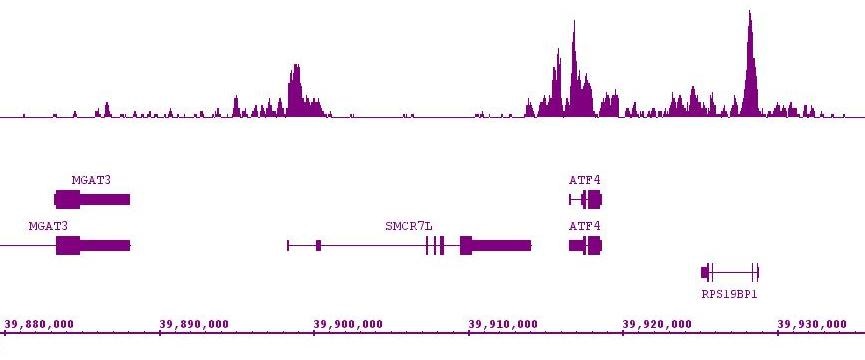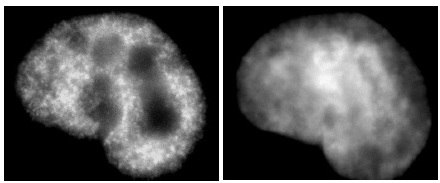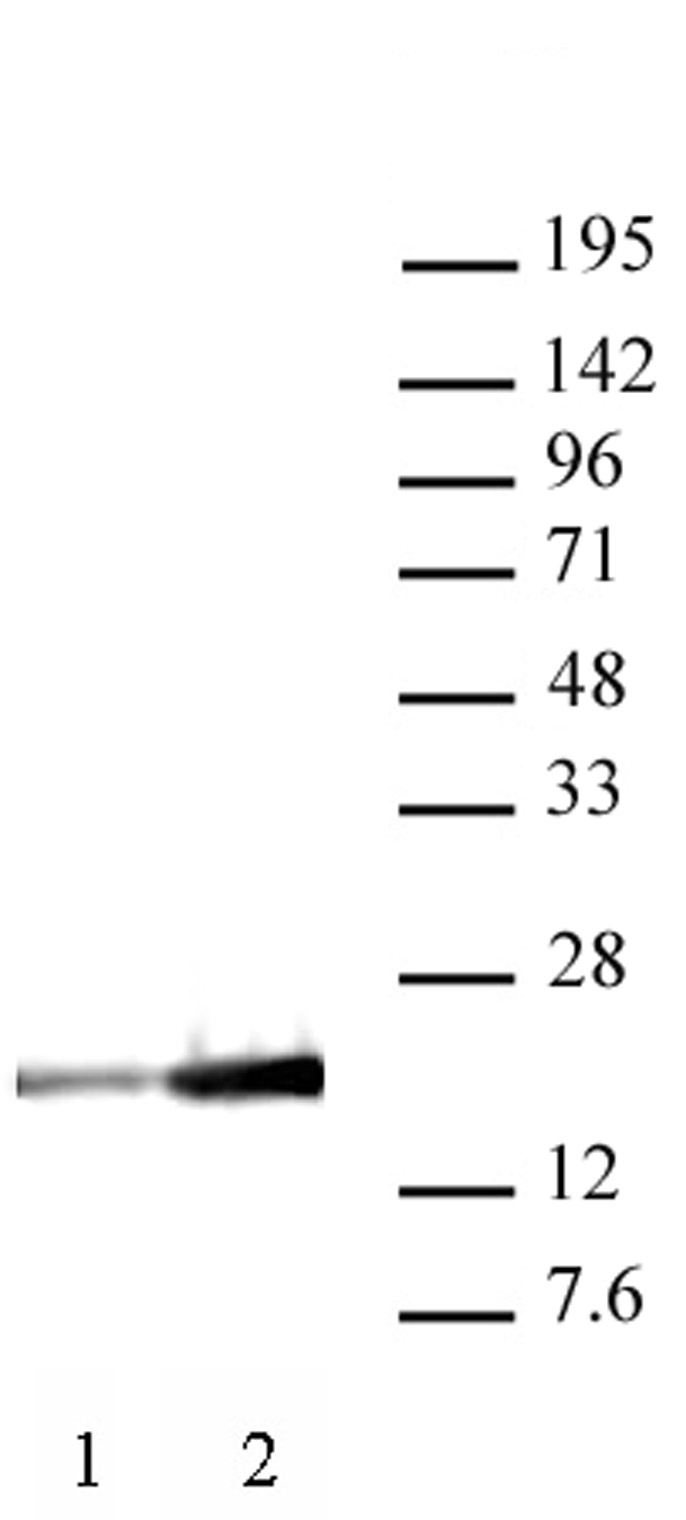Histone H3K9ac antibody (mAb) (Clone 2G1F9)
Host / Isotype
Rat / IgG2a
Reactivity
Human, Wide Range Predicted
Applications
ChIP, ChIP-Seq, ICC, IF, WB
CloneNo.
2G1F9
Cat No : 61663,61664 61663
Synonyms
Validation Data Gallery
Product Information
| Tested Applications |
ChIP, ChIP-Seq, ICC, IF, WB
Applications Validated by Active Motif: ChIP: 5 - 10 ug per ChIP ChIP-Seq: 5 - 10 ug each ICC/IF: 1 - 2 ug/ml dilution WB*: 0.5 - 2 ul/ml dilution ChIP-Seq validation was performed by Active Motif's Epigenetics Services; the complete data set is available in the UCSC Genome Browser by clicking here. *Note: many chromatin-bound proteins are not soluble in a low salt nuclear extract and fractionate to the pellet. Therefore, we recommend a High Salt / Sonication Protocol when preparing nuclear extracts for Western Blot. For Histone H3K9ac, we also offer AbFlex Histone H3K9ac Recombinant Antibody (rAb). For details, see Catalog No. 91103. |
| Tested Reactivity | Human, Wide Range Predicted |
| Host / Isotype | Rat / IgG2a |
| Class | Monoclonal |
| Type | Antibody |
| Modification | Acetylated |
| Immunogen | This antibody was raised against a peptide containing acetyl-lysine 9 of human Histone H3. |
| Full Name | Histone H3K9ac antibody (mAb) (Clone 2G1F9) |
| Synonyms | Histone H3K9ac, histone H3, histone, H3, histone-H3, histoneH3,H3 AcK9, Histone H3 Acetyl Lys9, Histone H3 Acetyl K9, Histone H3 Ac Lys9, H3 Acetyl Lys9, H3 Acetyl K9, H3 Ac Lys9, Histone H3 Acetylated Lysine 9, Histone H3 Acetyl Lysine9, H3 Acetylated Lysine 9, H3 Acetyl Lysine9, antibody, antibodies, H3K9Ac, Immunocytochemistry, ICC, Immunofluorescence, IF, western blotting, wb, monoclonal, mab, sample |
| Molecular weight | 17 kDa |
| GenBank accession number | NP_003522 |
| RRID | AB_2793725 |
| Purification Method | Protein G Chromatography |
| Buffer | Purified IgG in PBS with 30% glycerol and 0.035% sodium azide. Sodium azide is highly toxic. |
| Storage | Some products may be shipped at room temperature. This will not affect their stability or performance. Avoid repeated freeze/thaw cycles by aliquoting items into single-use fractions for storage at -20°C for up to 2 years. Keep all reagents on ice when not in storage. |
Background Information
Histone H3 is one of the core components of the nucleosome. The nucleosome is the smallest subunit of chromatin and consists of 147 base pairs of DNA wrapped around an octamer of core histone proteins (two each of Histone H2A, Histone H2B, Histone H3 and Histone H4). Chromatin is subject to a variety of chemical modifications, including post-translational modifications of the histone proteins and the methylation of cytosine residues in the DNA. Reported histone modifications include acetylation, methylation, phosphorylation, ubiquitylation, glycosylation, ADP-ribosylation, carbonylation and SUMOylation; these modifications play a major role in regulating gene expression. Lysine N-e-acetylation is a dynamic, reversible and tightly regulated protein and histone modification that plays a major role in chromatin remodeling and in the regulation of gene expression in various cellular functions. Histone H3 Lys9 can also be mono-, di- or trimethylated. The methylation of this residue is often associated with transcriptional repression. However, acetylation of histone H3 Lys9 is associated with transcriptional activation of the genes.



